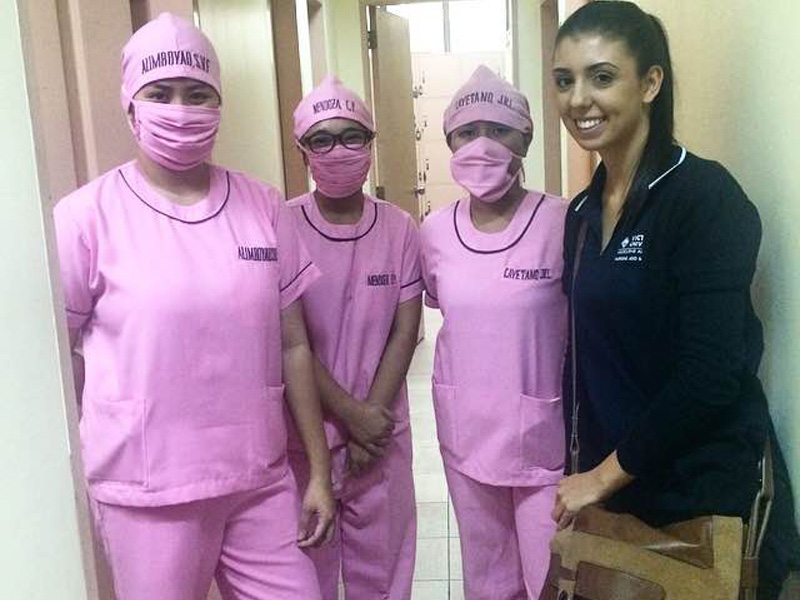Nursing students from Victoria University have been given an eye-opening glimpse into the working lives of medical staff in the Philippines.
The 10 students arrived home on February13 after a whirlwind two-week tour of Manila and Baguio City with a renewed appreciation of their profession.
VU’s Nursing and Midwifery International co-ordinator, Jennifer Rabach, said the tour was a huge success and the budding nurses from Australia and the Philippines were keen to share knowledge.
“We had a tour of St Louis University and sat in on classes,” Ms Rabach said. “We ran a session on nursing in Australia and had lots of questions.
“Their students have a big final exam before registration whereas we don’t, so that prompted much discussion.”
The Filipino nursing students generally complete their residencies in remote communities.
“They walk for four hours over unmade roads through the mountains, carrying their backpacks to get to the community. They sleep on the floor and bring their own food,” Ms Rabach explained.
In Manila, the students visited the World Health Organisation, where they met Department of Health staff.
“We discussed the major health issues in the Australia-Pacific region, which are tuberculosis, an ageing health workforce, a major shortage of health workers and HIV being on the increase among males.”
Third-year nursing student Kristine Cichello said the Aussies were welcomed with open arms and found it a very humbling experience.
“What really stood out to me was the difference in how much money the government invests in health care.
“Compared to Australia, it isn’t much,” the 23-year-old said. “Even in the public health system, the government only funds a limited amount.
“If a patient requires a dialysis machine, they get about 10 sessions paid for but from then they have to pay for it themselves.”
Miss Cichello said the Philippines doesn’t have many of the basics we take for granted, such as flushing toilets and clean water.
“Diarrhoea is such a problem, and in Manila, even fresh food is hard to come by,” she said.
“But they still advocate for the best care.”







